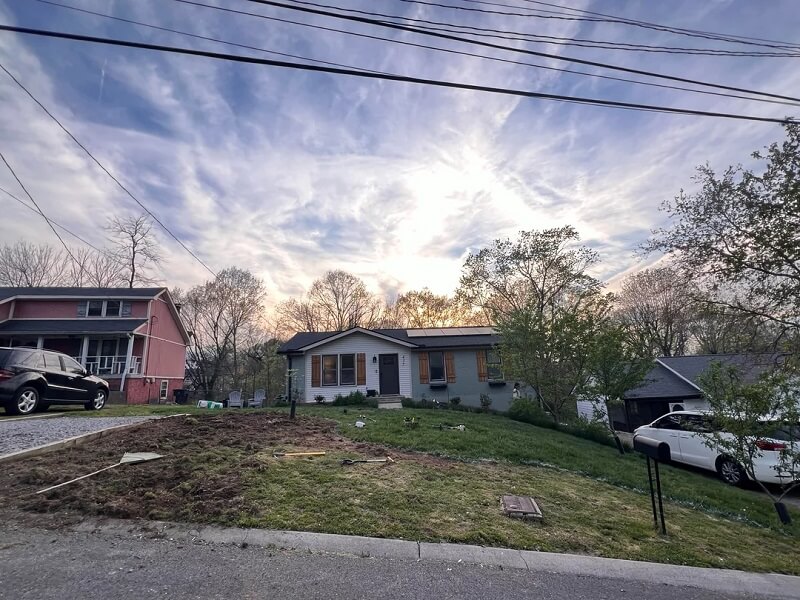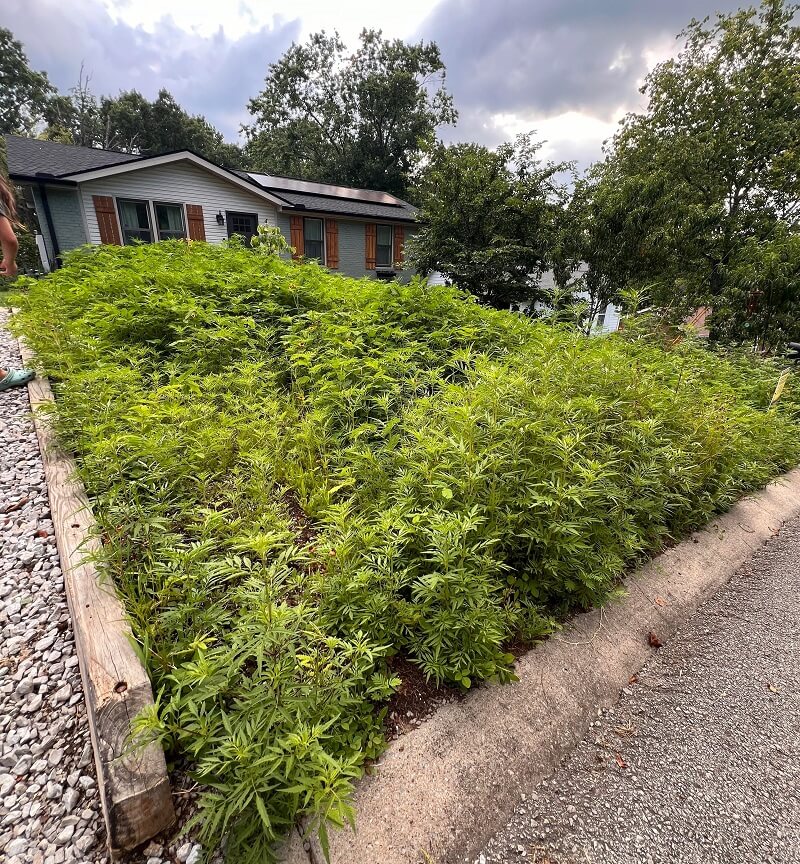After digging up their grass lawn, a homeowner turned their front yard into a beautiful native-plant garden.
"How it started vs. how it's going," wrote the Redditor who shared the post. "We're seed saving the annuals by deadheading."


The thriving native-plant garden is filled with a variety of species, including yarrow, blackeyed susans, purple coneflowers, lupines, and white prairie clover. Located in Nashville (Zone 7b), the homeowner tried to plant as many species native to the region as possible, containing any non-native plants.
Redditors were impressed with the results of the lawn transformation and eager to learn more about the process.
"Fab! We have some native range overlap for sure! What year is this garden?" asked one user.
"Year one! We sowed April 14th of this year," responded the Redditor who shared the post.
"I LOVE to pursue a species list," wrote another user. "Thanks for sharing."
Growing native plants in your yard instead of grass can actually save you time and money on lawn maintenance. While grass lawns require consistent watering and mowing, native plants conserve water, reducing your total water bill.
Since native plants have adapted to the region's climate, they also don't require the constant use of fertilizers and pesticides to grow healthy. By switching to a native-plant lawn, you can save on water, fertilizer, and pesticides and weed control each year.
Even a partial lawn replacement can help lower the cost of your yard's upkeep and reduce your environmental footprint. Native plants support the growth of the entire local ecosystem by attracting key pollinators, such as bees and butterflies.
Local birds and insects also rely on native plants as foraging and habitat sites. Without native plants, both the birds and insects would struggle to survive.
Redditors continued to share their amazement at the lawn's transformation.
"I am here for this," responded one user.
"Awesome!" wrote another Redditor.
Join our free newsletter for easy tips to save more, waste less, and help yourself while helping the planet.









